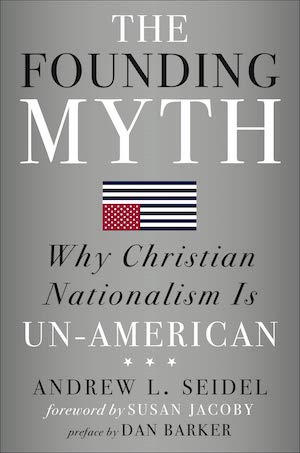The 40ft tall Christian cross, crumbling though it is, will remain in its traffic circle in Bladensburg, Md., because it’s been there for a long time and removing it would make people angry.
The conservative bloc on the Court went into this case seemingly united in an effort to bring “some clarity” to the caselaw surrounding the separation of state and church. In that respect, the court failed miserably. All told, there were seven separate opinions, concurrences and dissents, 87 pages, and odd bedfellows in a fractured, scattershot ruling. Only one thing is clear: the justices added no clarity to this area of the law, even though seven justices eventually voted to uphold the cross.
The conservative bloc failed in another respect. Conservative justices have complained for years that Establishment Clause law is fractured and unintelligible because the central test in that area is too. As I wrote back in February, the problem is not with the Lemon test, but with the Court’s unwillingness to apply that test. Instead, the court seeks to reverse engineer politically popular outcomes. At oral argument, justices and attorneys attacked Lemon repeatedly, but continued to come back to its core principles: no religious purpose, no religious effect, and no entangling the government with religion.
Despite their best efforts, Lemon survives, in part because “the central test the conservative bloc on the court and the Christian nationalist movement want to overturn, is also the test they all relied on to make their arguments. As much as they wanted to, they could neither completely get away from the Lemon test nor propose anything better.”
Because the outcome of applying the Lemon test is clear—as Ginsburg put it, “The principal symbol of Christianity around the world should not loom over public thoroughfares, suggesting official recognition of that religion’s paramountcy”—Justice Alito and his shaky majority instead “look[ed] to history for guidance.”
The history he cited includes legislative prayer, George Washington declaring a day of national thanksgiving, a disembodied quote from the Northwest Ordinance, and a line plucked from Washington’s Farewell Address about “religion and morality.” These are some of the favorite talking points and myths about our history. They do not reflect a country that was founded on Christian principles so much as a willingness to revise history in an attempt to prove that point.
I address many of these myths and lies in my book, including the same quote from Washington’s farewell address. “The Farewell Address conceives of religion and morality as two separate, distinct things—not as synonyms expressing the same thought, though Christian nationalists misread it that way.” And because we know that the founders treated religion and morality as separate, as Washington did here, we know that they did not use religion or religious principles to establish our government. (For a fuller explanation of this argument, and how the quote actually disproves Alito’s point, see chapter two of The Founding Myth.)
Alito’s majority opinion is bereft of both principle and reason, in the intellectual and legal senses. It was predictable because it was motivated by ideology. He could have been more concise and lost little nuance in his opinion by simply writing: “The 40ft tall Christian cross is really old and people will get upset if we remove it, so it stays.”
To find the pure application of legal principle and intelligent reason to the case, one needs to skip to the sixty-seventh page, to Ginsburg’s dissent with Sotomayor. “Decades ago, this Court recognized that the Establishment Clause of the First Amendment to the Constitution demands governmental neutrality among religious faiths, and between religion and nonreligion,” she wrote. “Precisely because the cross symbolizes these sectarian beliefs, it is a common marker for the graves of Christian soldiers. For the same reason, using the cross as a war memorial does not transform it into a secular symbol … By maintaining the Peace Cross on a public highway, the Commission elevates Christianity over other faiths, and religion over nonreligion.”
Clear, concise, and correct. The same cannot be said of the scattered, intellectually impoverished opinions coming from the justices who voted in favor of Christian nationalism and betrayed one of the founding principles that has made this nation great: the separation of state and church.






